
GRE Prep Club Daily Prep
Thank you for using the timer - this advanced tool can estimate your performance and suggest more practice questions. We have subscribed you to Daily Prep Questions via email.
Customized
for You
Track
Your Progress
Practice
Pays
Not interested in getting valuable practice questions and articles delivered to your email? No problem, unsubscribe here.
GRE-Optional Do we need the GRE yet? Can we throw it off? Not so fast
[#permalink]
 Updated on: 14 May 2023, 21:16
Updated on: 14 May 2023, 21:16
2
Expert Reply
GRE-Optional !!! Do we need the GRE yet? Can we throw it off? Well, Not so fast
There is a lot of buzz around the GRE as an exam for a while. Particularly, during and soon after the pandemic until today. For a long time, the Graduate Record Examination (GRE) was a necessary component of applying to the majority of doctoral and master's programs, and it was often viewed as a vital part of the application process along with grades earned in college and other aspects. Lately, the GRE has also been gaining popularity in professional degree programs; it started with M.B.A. admissions - see our Average GRE Scores - Top 50 MBA Programs (2023), and more recently, it has been included in law school admissions - List of Law Schools with TOP 20 colleges that accept the GRE (2023).
1) What is the Purpose & Benefits of the GRE Exam / What are the Limitations and Drawbacks of the GRE General Test
2) Why More Grad Schools Are Going GRE-Optional
Why more and more Schools are making the GRE optional is a complex issue and a long-standing debate among scientists and scholars alike. However, as the ancient wisdom says : " all all that glitters is not gold". That said, the GRE but not only - the GMAT, SAT, LSAT are in the same cauldron - is affected, mainly, because it has biases. BUT eliminating the GRE will not solve the problem for the students during the admission process. Let's discuss this because the students will have a more clear picture. In other words, what we are assessing is the following:
The GRE is biased = TRUE = the Schools are waiving more and more this exam, so the students no longer are required to have this test in their Admission portfolio = The GRE is no longer mandatory, therefore, I will have more chances to get into the program in which I am interested more = FALSE.
In a nutshell, I do not need anymore the GRE. No, this is totally groundless as well.
We will try to play the Devil's Advocate, considering both sides of the spectrum. Therefore, We will try to have a clear and deep understanding.
On one side, we do have those who advocate that the GRE, correctly, is eliminated as a metric to judge the students in graduate and post-graduate programs.
On the other side of the spectrum, we do have those who advocate that the GRE works as a balance to square the students in graduate and post-graduate programs.
2) Test-Taking Volume Plunges To A Historic Low
At first, the "GRExit" movement was mainly confined to the biological sciences. However, the abandonment of the GRE has now impacted every field. It really took off. It is a rampant phenomenon. The outbreak of the novel coronavirus, worries that the test may put pupils from less affluent backgrounds at a disadvantage, and uncertainty as to how accurately GRE scores can forecast grad school triumphs all led to the alterations. However, if these will be permanent and how they are affecting the pool of applicants or the makeup of new classes is yet to be established.
To give you just an exmaple, Science surveyed the admission standards of fifty prestigious American universities in eight separate fields and discovered that 3% of them currently require GRE General Test scores from applicants, a decrease from 84% four years ago. An additional 5% highly urge applicants to submit their scores, while the remaining 36% explicitly refuse to accept or review GRE scores. One program even stated, “A strong GRE score can increase your odds of being accepted in certain cases.”
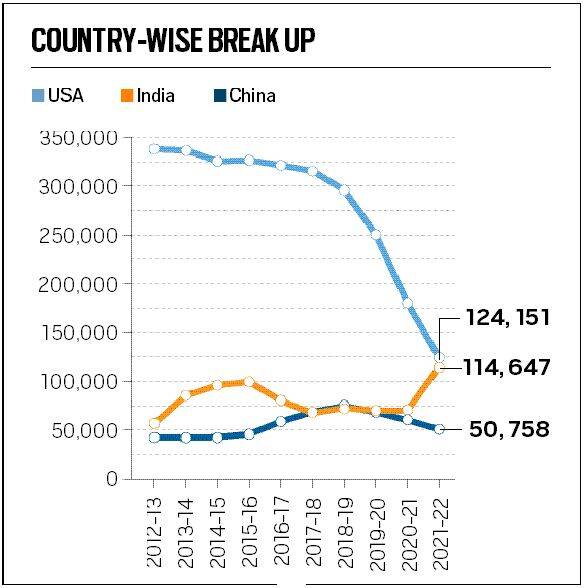
Even for the GMAT, which has a strong loyal base and is used mainly for the application to get into BS, things are no better with a staggering decrease. The number of GMAT tests taken in the United States has seen a dramatic decline in the past five years. In the testing year 2021, with the full impact of the pandemic evident, only 38,509 tests were taken, a 65% decline from the more than 109,000 in the testing year 2016.
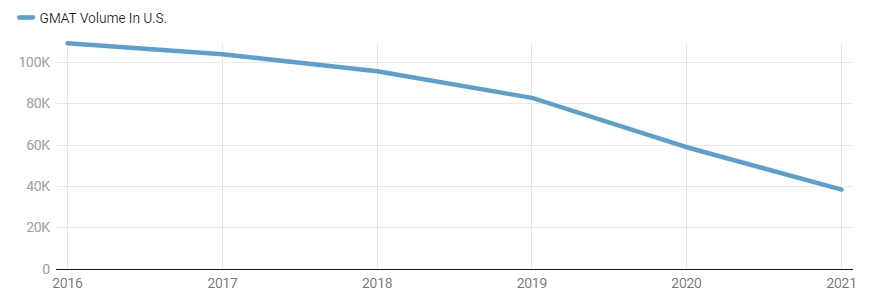
In the case of the GMAT we have a compound effect: both due to the pandemia and a decrease in market shares due to the advance of the GRE as a used test during the admission process.
.
2) Should we get rid of the GRE?
For all the reasons above, what is the answer ? Do we keep the GRE or its destiny is into oblivion? On balance, we strongly believe that the GRE is still a quite useful tool to assess the student's skills. In the end, what the students, scholars, members of the admission committee should have in mind is we need a balance.
As we already pointed out in the post: what is the GRE Score Percentiles, the GRE should be used as follows.
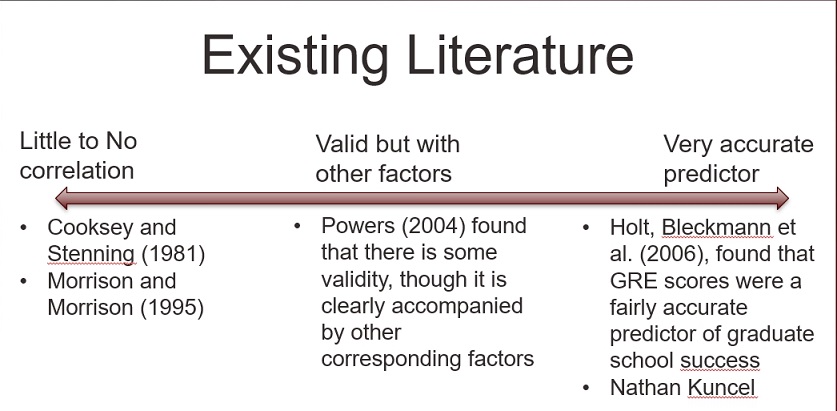
Moreover, one of the main reasons against the GRE are the costs to prepare but we do have testimonies that a great score could be achieved even using free resources such as those we have here. An example is How to achieve your target GRE score on a budget. Our mod rx10 had a staggering Verbal increase from 156 to 161 in barely one month with just the resources we have here.
"There is nothing more deceptive than an obvious fact." - Sherlock Holmes
Good luck
Sources used in addition to those already in the present article
https://dailynous.com/2018/09/07/univer ... iring-gre/
https://www.insidehighered.com/admissio ... -about-gre
https://www.uvm.edu/sites/default/files ... 17_uma.pdf
https://www.nature.com/articles/nj7504-303a
https://u.osu.edu/scintrohumanities/202 ... f-the-gre/
https://www.wbur.org/hereandnow/2019/06 ... ad-schools
https://eos.org/opinions/geogrexit-why- ... ng-the-gre
https://qz.com/gre-test-scores-graduate ... 1849843761
https://poetsandquants.com/2022/01/27/g ... admissions
https://www.science.org/content/article ... d-pandemic
https://www.repository.law.indiana.edu/ ... text=ochoa
https://www.studentprogress.org/gre/lim ... riticisms/
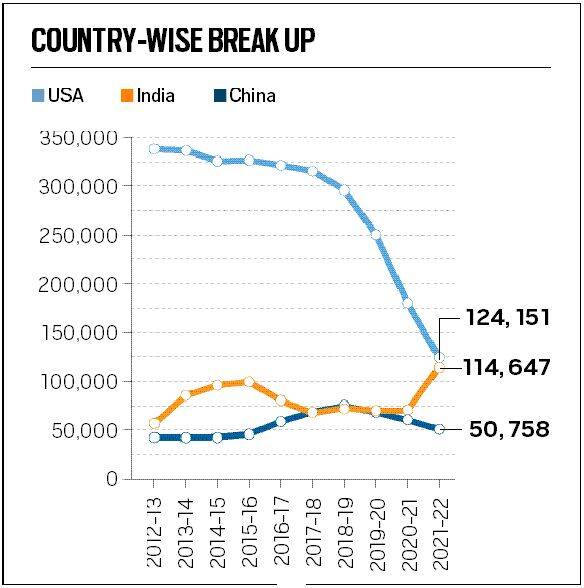
data1-1.jpg [ 40.75 KiB | Viewed 5674 times ]
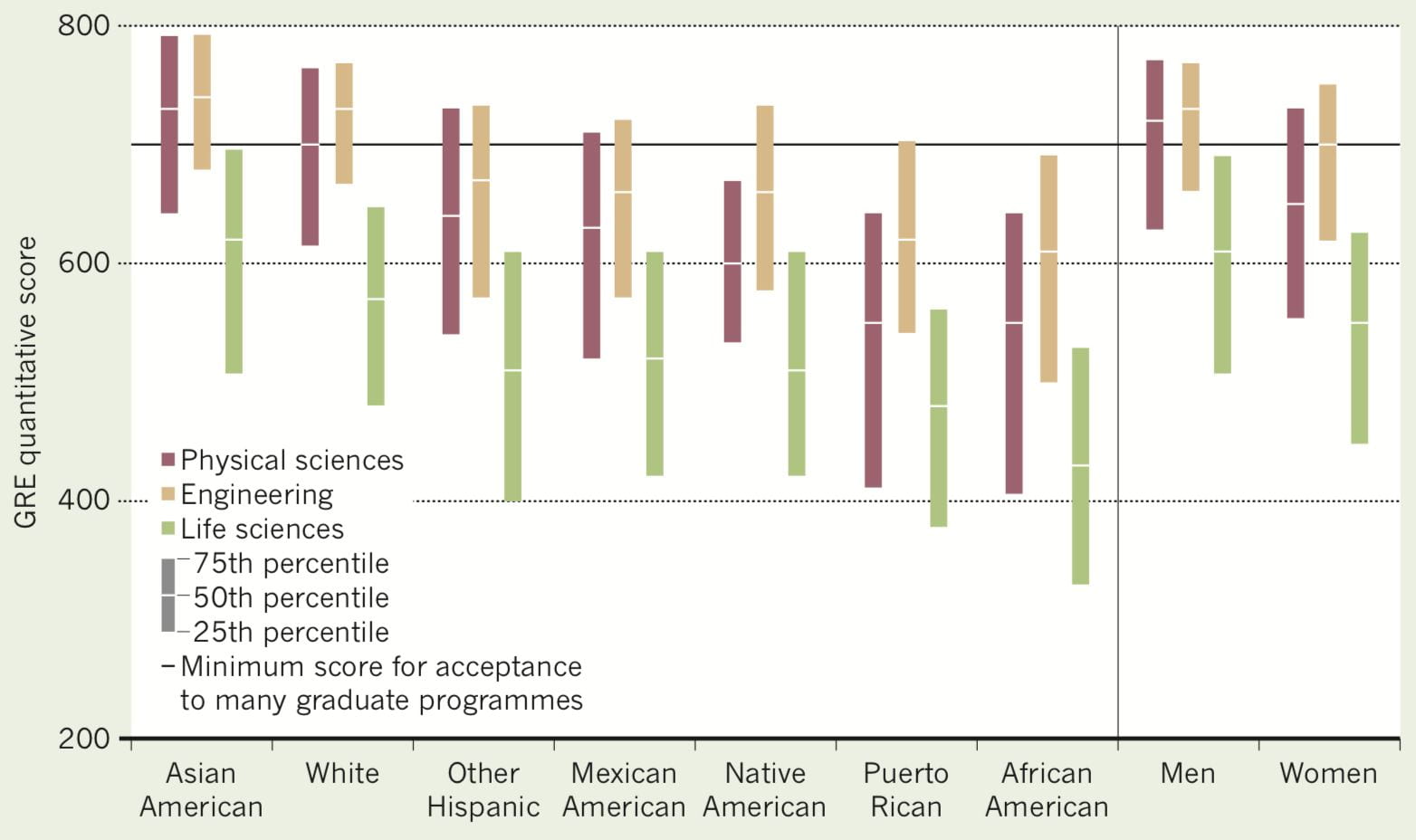
GRE bias.jpg [ 95.17 KiB | Viewed 5729 times ]
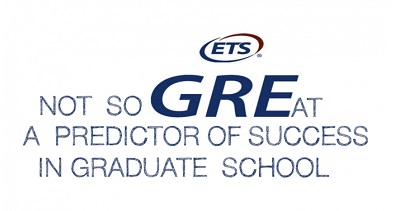
GRE (5).jpg [ 25.59 KiB | Viewed 5700 times ]
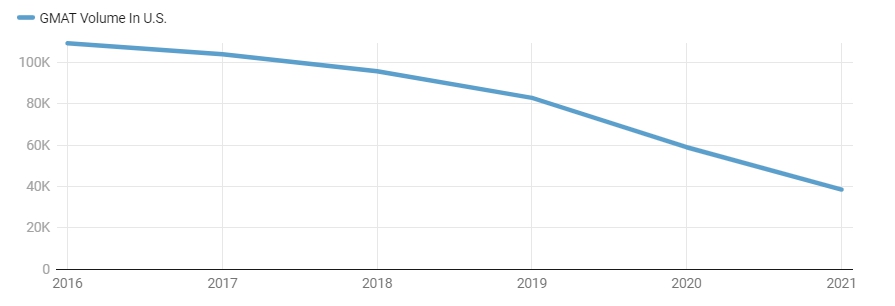
GMAT.jpg [ 39.99 KiB | Viewed 5685 times ]
There is a lot of buzz around the GRE as an exam for a while. Particularly, during and soon after the pandemic until today. For a long time, the Graduate Record Examination (GRE) was a necessary component of applying to the majority of doctoral and master's programs, and it was often viewed as a vital part of the application process along with grades earned in college and other aspects. Lately, the GRE has also been gaining popularity in professional degree programs; it started with M.B.A. admissions - see our Average GRE Scores - Top 50 MBA Programs (2023), and more recently, it has been included in law school admissions - List of Law Schools with TOP 20 colleges that accept the GRE (2023).
1) What is the Purpose & Benefits of the GRE Exam / What are the Limitations and Drawbacks of the GRE General Test
| GRE | |||||
Positive sides of the GRE | Negative Sides of the GRE | ||||
| #1 Widespread Acceptance: Accepted for admission, to top Universities throughout the world. The GRE exam is most frequently used for graduate admissions. For applications to elite universities in the US, UK, Australia, and Europe, GRE is accepted. The GRE is accepted by more than 1300 business institutions worldwide for MBA and other professional graduate programs. | #1 Research shows that there is a cultural and racial bias. | ||||
| #2 Flexibility In a computer-based test, the GRE is the only exam that lets you skip, mark, review, and modify your responses. By doing this, people can try again to answer questions, they had problems with the first time. In order to send only their best scores, to potential graduate programs, students can use the GRE Score Select tool. Due to the fact that students can take the GRE general test up to five times, annually with a minimum gap of 21 days, between two tests, they have plenty of opportunities to study for the exam and achieve a target score. These distinctive characteristics make the GRE one of the most user-friendly exams in the world. | #2 The GRE is an inconsistent and modest predictor of student success The GRE doesn’t measure quantitative skills beyond the high school level. Given the inability of the GRE to accurately assess/predict success in graduate school, it should not be included as part of the rubric that evaluators use when considering prospective students. | ||||
| #3 There is a Clear Syllabus for the GRE Test. The GRE has a fairly well-defined syllabus, and question types because it is designed to measure, verbal and quantitative thinking abilities. As a result, students and working professionals can prepare for the GMAT exam in 3–4 months on average with the aid of a milestone-driven study plan. | #3 The exam and prep program are a little pricey. Prep courses and prep books are on the expensive side, and some of the good ones may cause an examiner thousands of dollars. | ||||
| #4 Score Validity. Valid for Five years pass after the GRE exam date. Students who have taken the test now have adequate time to submit an application for graduate admission. GRE scores can also be sent to numerous institutions for a modest fee. Around 10 to 15 days following the exam date, the official GRE results are made public. As opposed to this, students have the option to check their preliminary exam results immediately following the test and decide whether or not to send them to the recognized institutions. | #4 Cost and format of the GRE disadvantages rural and low-income students | ||||
| #5 The GRE can help give your application a boost You are aware from your checklist that you must also submit your GRE score along with a personal statement, resume, letters of recommendation, and transcripts. Your GRE score is a terrific opportunity to demonstrate to admissions committees that you have more skills to offer if you feel that one (or more) of those materials isn't as strong as you'd like. Even though a high GRE score won't ensure admission, it can compensate for weaknesses in other areas. The GRE can lead to a wide range of opportunities. GRE preparation is not as simple as it may seem. So, it is wiser to seek help from Global Creed, a group that sends thousands of students to their ideal university for masters and many other programs. Give your dreams wings by visiting your nearby center or calling our advisers at Global Creed. | #5 The test could be taken multiple times, wasting time and draining students' resources to invest in other important aspects of their application | ||||
2) Why More Grad Schools Are Going GRE-Optional
Why more and more Schools are making the GRE optional is a complex issue and a long-standing debate among scientists and scholars alike. However, as the ancient wisdom says : " all all that glitters is not gold". That said, the GRE but not only - the GMAT, SAT, LSAT are in the same cauldron - is affected, mainly, because it has biases. BUT eliminating the GRE will not solve the problem for the students during the admission process. Let's discuss this because the students will have a more clear picture. In other words, what we are assessing is the following:
The GRE is biased = TRUE = the Schools are waiving more and more this exam, so the students no longer are required to have this test in their Admission portfolio = The GRE is no longer mandatory, therefore, I will have more chances to get into the program in which I am interested more = FALSE.
In a nutshell, I do not need anymore the GRE. No, this is totally groundless as well.
We will try to play the Devil's Advocate, considering both sides of the spectrum. Therefore, We will try to have a clear and deep understanding.
On one side, we do have those who advocate that the GRE, correctly, is eliminated as a metric to judge the students in graduate and post-graduate programs.
- a recent article published on dailynous.com University of Pennsylvania Philosophy Stops Requiring the GRE there was the following inscription and it had quite a dig among the experts
Key factors in this decision were, first, that the GRE can be financially burdensome for low-income applicants and offer unfair advantages to wealthy applicants. Second, GRE scores do not, in general, accurately predict academic performance in graduate school (e.g. Q,V, & AGRE scores explain only 4.4-7.8% of graduate GPA variance according to replicated studies). Third, significant gaps in GRE performances by women and underrepresented racial and ethnic minorities made it especially difficult for them to be accepted. Fourth, nothing of significant value was gained using the GRE that the committee couldn’t figure out from looking at transcripts, writing samples, etc. - The GRE is an inconsistent and modest predictor of student success, reported that 1) students who withdrew from programs had mean quantitative GRE averages actually higher than those completing degrees or remaining in training, and 2) the GRE is at best a predictor of first-year graduate school grades, but undergraduate GPA does this as well. Furthermore, the GRE doesn’t measure quantitative skills beyond the high school level, covering only arithmetic, algebra, geometry, and elementary statistics. Therefore, it is unconvincing that GRE scores would have greater predictive power than undergraduate math grades.
- Cost and format of the GRE disadvantages rural and low-income students. The test itself + the costs to attend in-person classes or private tutoring or even self-paced ranging from a few hundred dollars to over two thousand dollars. The GRe world is pricy.
- In short, there is a consistent trend that the GRE massively favors those who are white, male, or Asian-American. This is a strong example of systemic injustice as this test was, and still largely is, the standard for many graduate admissions programs, despite these known and clear biases. Thus, those of the preferred sociopolitical backgrounds have been having a far easier time getting into these graduate programs all because of the inherent bias in this test.
While it is likely not the intent to discriminate against these groups via the test, that is nonetheless the proven outcome. - Indeed, this is a concern and a debate that has been raging for decades. Multiple studies have been consistently showing the same conclusion: the GRE is systemically biased. In short, there is a consistent trend that the GRE massively favors those who are white, male, or Asian-American. This is a strong example of systemic injustice as this test was, and still largely is, the standard for many graduate admissions programs, despite these known and clear biases.
- Several Universities are waiving the GRE. Before we had just a few but now is a surge. Georgia State University’s Robinson College of Business Eliminates GMAT/GRE Requirement & UC Berkeley eliminates GRE test requirement for vast majority of graduate programs are just two examples.
- We do have a plethora of scientific investigations show actually that
https://ubiquity.acm.org/article.cfm?id=1071921
https://journals.plos.org/plosone/artic ... ne.0166742
https://journals.plos.org/plosone/artic ... ne.0206570
https://journals.sagepub.com/doi/abs/10 ... 4409344508
https://www.tandfonline.com/doi/full/10 ... 23.2187177
Researchers studied the admission criteria of 50 leading U.S. universities for Ph.D. programs in eight separate fields. Just 3% of them require GRE General Test scores from aspiring candidates now, compared to 84% four years prior. An extra 5% suggest they should be sent. Others offer it as an option; one school's website stated that "In some cases, a strong GRE score can help enhance your chances of being accepted." Nevertheless, 36% clearly specified that GRE scores will not be taken into consideration when evaluating applications. Sarah Ledford, an assistant professor at Georgia State University, keeps a record of earth sciences programs that do not necessitate GRE scores. - In some cases, Graduate programs drop GRE after online version raises concerns about fairnessQuote:Test takers have reported problems on test day. One prospective graduate student who lives in the Philippines and wished to remain anonymous called her experience a "nightmare." She had a connection and technical issues that delayed her start time by 90 minutes. "I was not in the right mindset when I started the actual test," she says. Another test taker—Madi Mollico—says her test went fine, but that the proctoring experience was "nerve-wracking and anxiety-inducing." She had expected to see her proctor on the screen, but when she started the test, she was unnerved to discover that he could see her, but she couldn't see him. "He kept calling me sweetheart, which … definitely felt a little bit condescending,"
- We are of the opinion that numerous STEM faculty members, admissions personnel, and administrators have an entrenched and unfounded idea that standardized test scores are reliable indicators of talent, aptitude for succeeding in graduate school, and prospects for being a successful scientist. We believe these assumptions to be inaccurate.
On the other side of the spectrum, we do have those who advocate that the GRE works as a balance to square the students in graduate and post-graduate programs.
- People contended that the GRE could be a way to even the playing field. A graduate student expressed that they came from an unknown college with limited access to big-name references and believed the GRE could be a way to make up for that. It didn't turn out to be that way, but that's not the point. It is not certain that the GRE gives wealthy applicants an advantage as they are more likely to attend prestigious schools and thus have famous references as well as the cost of the GRE and extra scores is minor in comparison to the cost of college applications.
- The admission committee has an array of factors, considering the GRE offers to be implemented in evaluation.
- The GRE has been very useful in evaluating and gauging a student's abilities. Those who score lower must strive to improve their communication, analytical, and quantitative skills, which are all tested on the GRE.
- Low scores in the quantitative section of the GRE indicate that a student may have difficulty with academic subjects that rely heavily on mathematics or science-related skills.
- Individuals who achieve high scores on a writing exam usually demonstrate excellent written communication abilities, as well as a knack for constructing and assessing the logic of any argument. These students are usually quite equipped for tasks such as creating grant proposals and academic papers.
- Furthermore, those with impressive verbal GRE scores usually excel in using grammar correctly, speaking in seminars, and writing papers and proposals. On the other hand, someone with a verbal GRE score in the bottom 40 percentile may have difficulties in an academic setting that requires verbal and written communication. It is usually seen that people with either a high or low verbal GRE score will have commensurate grades in subjects that involve verbal or written communication. Those with high quantitative scores are typically proficient in mathematics and science, and are adept at analyzing data, as well as recalling and expressing factual information. Alternately, individuals who score low on the quantitative portion of the GRE may have difficulty with academics that necessitate math or science-related abilities.
- Leaving out GRE results would have a detrimental effect on both the admissions decision and the selection of the lab a student would use to obtain their MS or PhD. Not considering a low GRE score during admissions could result in the acceptance of someone not prepared for graduate studies or a particular program. A potential student with excellent GRE scores could be rejected too quickly if their score is ignored. When selecting a lab, some faculty members use specific portions of the GRE as a guide; for instance, a lab that requires a lot of quantitative work may not be suitable for a student with weak quantitative GRE scores. To ensure the best decision, faculty members should be provided with GRE information.
- Studies concludes, “Results from a large body of literature indicate that standardized tests are useful predictors of subsequent performance in graduate school, predict more accurately than college GPA, do not demonstrate bias, and are not damaged by test coaching. Despite differences across disciplines in grading standards, content, and pedagogy, standardized admissions tests such as the GRE have positive and useful relationships with subsequent student accomplishments.” Standardized Tests Predict Graduate Students' Success & The Graduate Management Admission Test (GMAT) is even more valid than we thought
- It is worth noting that the claim of the low predictive value of GRE scores was based solely on data from those who had scores high enough to be accepted into graduate programs. This could lead to a statistical selection bias. Despite this, many students with high GRE scores still manage to be successful, while some students with lower scores still do well due to other positive qualities. As such, the fact that GRE scores don't seem to correlate with success among the admitted group is actually evidence that the holistic approach is working, not that GRE scores are useless.
- Therefore, while making admissions decisions, we should take into account all criteria, including the GRE, to get a holistic picture of the potential of a student.
2) Test-Taking Volume Plunges To A Historic Low
At first, the "GRExit" movement was mainly confined to the biological sciences. However, the abandonment of the GRE has now impacted every field. It really took off. It is a rampant phenomenon. The outbreak of the novel coronavirus, worries that the test may put pupils from less affluent backgrounds at a disadvantage, and uncertainty as to how accurately GRE scores can forecast grad school triumphs all led to the alterations. However, if these will be permanent and how they are affecting the pool of applicants or the makeup of new classes is yet to be established.
To give you just an exmaple, Science surveyed the admission standards of fifty prestigious American universities in eight separate fields and discovered that 3% of them currently require GRE General Test scores from applicants, a decrease from 84% four years ago. An additional 5% highly urge applicants to submit their scores, while the remaining 36% explicitly refuse to accept or review GRE scores. One program even stated, “A strong GRE score can increase your odds of being accepted in certain cases.”
Even for the GMAT, which has a strong loyal base and is used mainly for the application to get into BS, things are no better with a staggering decrease. The number of GMAT tests taken in the United States has seen a dramatic decline in the past five years. In the testing year 2021, with the full impact of the pandemic evident, only 38,509 tests were taken, a 65% decline from the more than 109,000 in the testing year 2016.
In the case of the GMAT we have a compound effect: both due to the pandemia and a decrease in market shares due to the advance of the GRE as a used test during the admission process.
.
2) Should we get rid of the GRE?
For all the reasons above, what is the answer ? Do we keep the GRE or its destiny is into oblivion? On balance, we strongly believe that the GRE is still a quite useful tool to assess the student's skills. In the end, what the students, scholars, members of the admission committee should have in mind is we need a balance.
As we already pointed out in the post: what is the GRE Score Percentiles, the GRE should be used as follows.
Moreover, one of the main reasons against the GRE are the costs to prepare but we do have testimonies that a great score could be achieved even using free resources such as those we have here. An example is How to achieve your target GRE score on a budget. Our mod rx10 had a staggering Verbal increase from 156 to 161 in barely one month with just the resources we have here.
"There is nothing more deceptive than an obvious fact." - Sherlock Holmes
Good luck
Sources used in addition to those already in the present article
https://dailynous.com/2018/09/07/univer ... iring-gre/
https://www.insidehighered.com/admissio ... -about-gre
https://www.uvm.edu/sites/default/files ... 17_uma.pdf
https://www.nature.com/articles/nj7504-303a
https://u.osu.edu/scintrohumanities/202 ... f-the-gre/
https://www.wbur.org/hereandnow/2019/06 ... ad-schools
https://eos.org/opinions/geogrexit-why- ... ng-the-gre
https://qz.com/gre-test-scores-graduate ... 1849843761
https://poetsandquants.com/2022/01/27/g ... admissions
https://www.science.org/content/article ... d-pandemic
https://www.repository.law.indiana.edu/ ... text=ochoa
https://www.studentprogress.org/gre/lim ... riticisms/
Show: ::
Attachment:
data1-1.jpg [ 40.75 KiB | Viewed 5674 times ]
Attachment:
GRE bias.jpg [ 95.17 KiB | Viewed 5729 times ]
Attachment:
GRE (5).jpg [ 25.59 KiB | Viewed 5700 times ]
Attachment:
GMAT.jpg [ 39.99 KiB | Viewed 5685 times ]

gmatclubot
GRE-Optional Do we need the GRE yet? Can we throw it off? Not so fast [#permalink]
10 May 2023, 14:03
Moderators:
|
|
||

